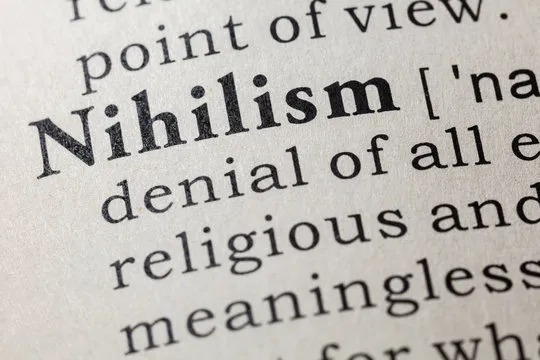
Nihilism: An Exploration of Nothingness
Introduction
Nihilism is a complex and multifaceted philosophy that questions the very foundations of human existence, including truth, morality, and meaning. Originating from the Latin word “nihil,” meaning “nothing,” nihilism has significantly influenced various aspects of intellectual thought, art, and culture. This article delves into the origins, key concepts, and impact of nihilism, providing a comprehensive understanding of this often misunderstood philosophy.
Origins and Historical Context
Nihilism as a distinct philosophical doctrine emerged prominently in the 19th century, although its roots can be traced back to earlier skeptical traditions. The term gained widespread recognition through the works of Friedrich Nietzsche, who famously declared, “God is dead.” Nietzsche’s proclamation symbolized the collapse of traditional values and the rise of a worldview that rejects the existence of objective truths and universal moral principles.
Historically, nihilism can be seen as a response to the Enlightenment’s emphasis on reason and scientific progress, which, while discrediting many religious and metaphysical beliefs, left a void in the realm of meaning and purpose. This existential crisis was further exacerbated by the horrors of the 20th century, including two World Wars and the advent of nuclear weapons, which seemed to underscore the futility and absurdity of human endeavors.
Key Concepts in Nihilism
Nihilism is not a monolithic philosophy; rather, it encompasses various perspectives and sub-disciplines, each addressing different aspects of existence and knowledge.
Metaphysical Nihilism: This branch questions the very nature of reality itself. Metaphysical nihilists argue that the existence of objects, or even the entire universe, is contingent and might not possess inherent reality. This perspective challenges our fundamental understanding of being and existence.
Epistemological Nihilism: Epistemological nihilism asserts that knowledge is impossible. Proponents argue that any attempt to attain certain knowledge is futile, as all human perceptions and interpretations are inherently flawed. This skepticism undermines the possibility of absolute truth and objective knowledge.
Moral Nihilism: Also known as ethical nihilism, this view denies the existence of intrinsic moral values. Moral nihilists believe that concepts of right and wrong, good and evil, are human constructs without any objective basis. This perspective challenges the foundation of ethical theories and moral judgments.
Existential Nihilism: Perhaps the most well-known form, existential nihilism posits that life has no intrinsic meaning or value. This viewpoint is closely associated with existentialist thinkers like Jean-Paul Sartre and Albert Camus, who explored the implications of living in a seemingly indifferent and absurd universe.
Influence and Criticism
Nihilism has left an indelible mark on various fields, including literature, art, and politics. In literature, figures like Fyodor Dostoevsky and Franz Kafka grappled with nihilistic themes, depicting characters who confront the void of meaning and the absurdity of existence. In art, movements such as Dadaism and Abstract Expressionism reflect nihilistic tendencies by rejecting traditional aesthetic values and embracing chaos and randomness.
Politically, nihilism has been both criticized and embraced. Some argue that nihilism leads to despair, moral decay, and societal breakdown, as it undermines the foundations of ethics and meaning. Critics contend that without belief in objective values, individuals and societies are prone to nihilistic violence and apathy. Conversely, proponents of nihilism argue that it offers a path to freedom and authentic existence. By rejecting imposed meanings and values, individuals can create their own purpose and live more genuinely.
Notable Philosophers and Works
Several philosophers have engaged deeply with nihilistic thought, each contributing to its development and interpretation:
Friedrich Nietzsche: In works like “Thus Spoke Zarathustra” and “The Will to Power,” Nietzsche explored the consequences of the “death of God” and the resulting moral and existential void.
Albert Camus: In “The Myth of Sisyphus,” Camus confronted the absurdity of life and argued for the importance of personal rebellion and the creation of meaning in a meaningless world.
Jean-Paul Sartre: In “Being and Nothingness,” Sartre examined the nature of existence and the human condition, emphasizing the freedom and responsibility that come with recognizing the absence of intrinsic meaning.
Conclusion
Nihilism remains a provocative and influential philosophy, challenging deeply held assumptions about reality, knowledge, and morality. While often associated with despair and meaninglessness, nihilism also offers a framework for understanding the complexities of the human condition and the potential for individual freedom and self-determination. By grappling with the void, nihilism invites us to confront our deepest fears and to seek out or create our own meaning in an uncertain world.
Further Reading and External Links
- Nietzsche, Friedrich. The Will to Power. Archive.org
- Camus, Albert. The Myth of Sisyphus. Archive.org
- Heidegger, Martin. Being and Time. Archive.org
- Sartre, Jean-Paul. Being and Nothingness. Archive.org
- Leiter, Brian. Nietzsche on Morality. Amazon
- Stanford Encyclopedia of Philosophy: Nihilism
- Internet Encyclopedia of Philosophy: Nihilism
- Encyclopedia Britannica: Nihilism
This article aims to provide a broad yet detailed overview of nihilism, encouraging further exploration and understanding of this profound philosophical perspective.